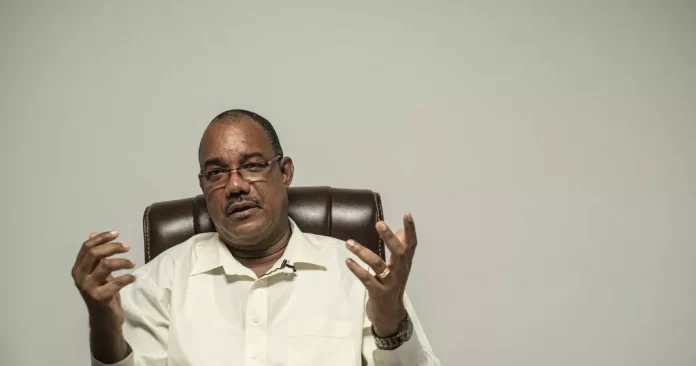Somali Magazine – In a surprising and unprecedented turn of events, Patrick Herminie, the main opposition leader in Seychelles, has been charged with witchcraft. This case has sent shockwaves through the political landscape of Seychelles, stirring tensions and raising questions about the interplay of politics, culture, and law in the island nation.
Herminie, a medical doctor by profession and former speaker of Seychelles’ parliament, is currently out on bail. The charges against him stem from the discovery of two exhumed bodies at a cemetery on the island of Mahé. The prosecution alleges that Herminie’s name appeared in a WhatsApp conversation between a Seychellois national and a Tanzanian suspect, who was apprehended on 2nd September at the main international airport.
Herminie has vehemently denied the allegations, asserting that he is being targeted in a politically motivated smear campaign. He recounted a recent incident in which his office was raided by 40 to 50 police officers armed with pistols and AK-47s. “They came with a warrant from the court requesting that my office be searched for satanic and demonic artefacts,” he said.
Witchcraft holds a significant position in the culture of Seychelles, serving not only as a means of healing but also as a way of life. It’s deeply interwoven with their social, political, and economic cultures. The Seychelles government has enacted measures to address witchcraft, including an anti-witchcraft law that criminalises promoting, practicing, or consulting with witch doctors.
Herminie, who plans to run in the 2025 presidential election under the banner of the United Seychelles Party (USP), the country’s main opposition party, told local media that his arrest and prosecution were a political effort to taint his image and that of his party.
The trial of Patrick Herminie and the seven other defendants will begin in November. As the political climate in Seychelles continues to heat up, the world watches with bated breath. This case serves as a stark reminder of the complex interplay between politics, culture, and law in societies around the world.
This case has sparked a heated debate about the role of witchcraft in Seychelles society and its implications for the country’s political landscape. Some see the charges as an attempt to discredit Herminie and his party ahead of the 2025 presidential election. Others view it as a reflection of the deep-seated cultural beliefs and practices that continue to shape the social and political dynamics of Seychelles.
As the trial approaches, the eyes of the nation and the world are on Seychelles. The outcome of this case could have far-reaching implications for the country’s political future and its ongoing struggle to balance tradition with modernity.

